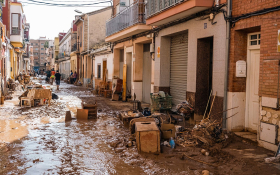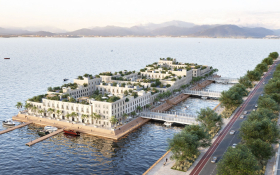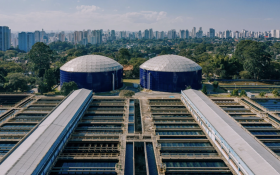Dutch-American joint venture HMVTRS launches new soil remediation process of electrical heating for Europe
Dutch soil remediation firm Hannover Milieu- & Veiligheidstechniek (HMTV) and US company TRS start a joint venture to introduce the soil clean up process of Electrical Resistance Heating (ERH) to the European market. By using electrodes the polluted gorundwater can heated up and turned into steam, evaporating the contaminants.
The introduction of this new process by joint venture HMVTRS came to possible to clean up contamination that never could have been remediated in the past. In situ remediator HMVT extends its existing service offering with the ERH process.
For TRS, the joint venture offers the opportunity to expand its market coverage.
Heat turns groundwater into steam
Electrical Resistance Heating (ERH) can be applied in soil and groundwater remediation. The idea is simple. Electrodes are placed in the soil. Electricity is then passed through electrodes until the soil is heated up to a maximum temperature of the boiling point of water.
This heat turns the groundwater into steam to evaporate the contaminants. The vapors and steam are then extracted, resulting in almost completely clean soil.
Robust and effective remediation
The process is extremely robust: all of the soil is heated and therefore all contaminants are evaporated. ERH is much less sensitive to the heterogeneous nature of the soil: even layers of loam/clay are heated up.
This differs from other in situ remediation processes which merely remove easily accessible contaminants and are less efficient – especially in cases of pure product with volatile (chlorinated) hydrocarbons.
ERH provides a solution for lingering contaminants which could never have been remediated in the past.
This news release was originally published on the website of "http://www.hmvt.nl/en/nieuws/joint-venture-brings-innovative-remediation-process-europe" target=_blank>Hannover Milieu- en Veiligheidstechniek.
More information
Hannover Milieu- en Veiligheidstechniek
Ede, the Netherlands
+31 318 624 624
www.hmvt.nl/en





